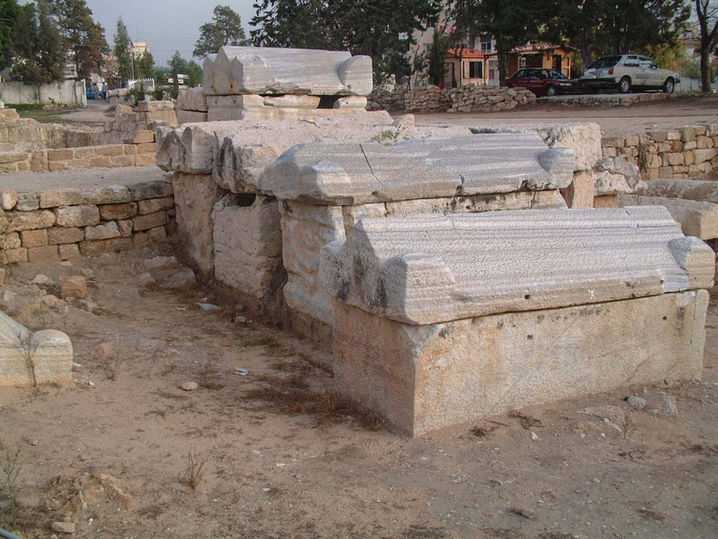Impressions of Lebanon
Lebanon is a remarkable and mysterious country. Tormented by war and civil war, Lebanese are probably one of the most resilient people in the world. It is an art and it takes more than just a philosophical approach to life to go on with daily business as if nothing were happening, heading for work every day, enjoying outdoor life along the Corniche, tasting falafels, humus and more of this wonderful Lebanese kitchen, while buildings are being shot apart, snipers shoot at anything moving on the other side of a street which 'belongs' to yet another ethnic or religious group, cars are being blown up, air strikes create havoc. This is a superficial and nutshell description of Beyrouth in the years of civil war between 1975 and 1990 and in the multiple periods of other warfare before and after.
Travelling through the country, one gradually discovers the sources of the sectarian climate which for ages has been determining the course of the country. Already from early times onward, history, geography and coincidence have together catapulted this country into the role of a crossroads of religions and cultures, which at best succeeded one another, in the worst case encountered each another on the time line, ... and thus clashed, on a very limited plot of land called Lebanon. Conflict and civil war are not new in Lebanon since the second World War; they have heavily marked the country since much earlier. To say the least, it's complicated. Muslims are not just Muslims, they are Sunni and Shi'a, Christians are not just Christians, they are Maronites, Melchites, Syrian-Orthodox, Greek-Orthodox and more, while Druze are yet another collectivity in the equation. An equation with so many variables that a multitude of answers are conceivable, so many that not one of them is supported by all.
And yet, Lebanon is far from being a grim country. For this, the sea is too blue, the snow-capped Mount Lebanon range is too spectacular, the archaeological sites are too rich and fascinating, the Lebanese kitchen is too delicious, the people are too friendly and welcoming. Understanding the present by discovering the past, and exploring the many wonderful and delicate things humanity and nature have produced here, this is why Lebanon fully deserves to be on our traveller's bucket list. Let's get started.
Before visiting the place of your choice:
As usually in Roman cities, the access road to ancient Tyre is lined by a necropolis on both sides. The necropolis consists of hundreds funerary monuments and sarcophagi from Roman, but also Byzantine times, up to the 6th century AD. This is the period when Byzantium was wrecked by a Sassanid Persian conquest campaign in 602, indirectly leading in 640 to the loss of the Byzantine territories in the Levant to the Rashidun Caliphate of the Prophet Mohamed's Arab successors.

























© 2020.Created by Marc Van den Reeck with Wix.com